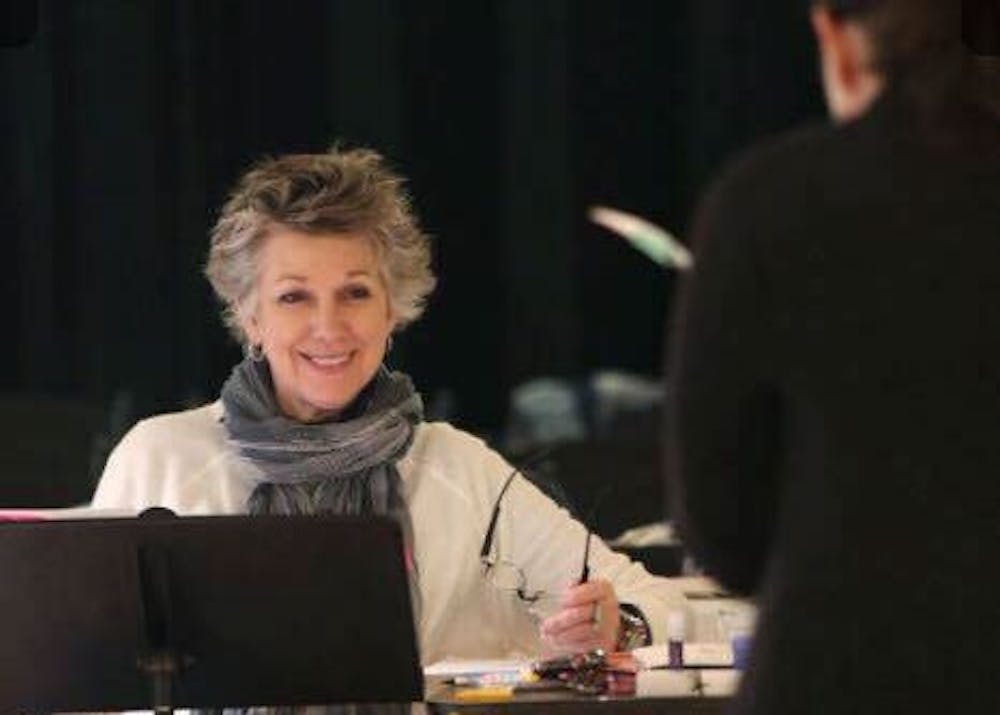The Musical Arts Center will open its third opera of the fall season with Englebert Humperdink’s “Hansel and Gretel.” The production will be directed by renowned theatrical director Candace Evans.
Performances will be held at 7:30 p.m. Nov. 11-12 and Nov. 17-18.
Evans has returned to guest direct another praised opera production at IU. After first working with the Jacobs School of Music in 2012, she continued to guest direct with productions like “Candide” and “Werther.” The Indiana Daily Student spoke with Evans about her role as director of “Hansel and Gretel” on Oct. 26.
IDS: What first brought you to IU as a guest director?
Evans: This is my ten-year anniversary. I began here in 2012 doing “Candide,” and I’ve done seven operas here over the subsequent 10 years so it’s kind of become home. It’s such an experience to have such incredibly trained singers and to have such support from these departments.
IDS: A lot of first timers are taken aback when they see the Musical Arts Center and its resources. Did you have a similar first experience?
Related: [Ludwig Mies van der Rohe’s international status as an architect becomes local]
Evans: I absolutely did. I was doing a remount of “Candide” in 2012 so it was a production they already had in stock, but we got to reimagine it in a way. The ability to use mechanized wagons and turntables makes it probably the most well-equipped stage I’ve ever worked on. It’s fabulous and it also empowers you as a director to imagine even more magical things because you can move a set very quickly and transform the stage.
IDS: So, when you’re directing a new production, what’s the starting point for you?
Evans: The music. I get the score and I just start listening. It’s very rare that a composer does not give you what I’m going to call a “magic carpet.” You listen and you hear things; you can hear intent and mood change. Then of course I read the libretto — the words of the score. My background is in all fields of singing, dance and theater, but my master’s degree is in classical acting and directing so I’m very text driven. I’m charting the course of where the story goes, so then I start sitting down with the score and start sketching out ideas in my mind about what I need to make that truth.
IDS: You mentioned your background involved training in singing and dancing. How has that impacted your career as a director?
Evans: Tremendously, the shortest way to say it is I’ve walked the walk. When I ask a singer to roll on the floor, I know where they will need to breathe, where they will need to sing, whether it’s fair to ask for that, because I’ve done it and I understand. I generally do my own choreography because of the dance background, and I feel it’s a touch more seamless. I want the dance section to serve, to enhance the story.
IDS: Now, there is a misconception that opera is “unattainable.” Would you say that people just have to find that entry level piece to realize that it’s not out of reach to enjoy?
Evans: Yes, we’re marketing “Hansel and Gretel” very strongly to families and children. But it’s also a good first opera for adults who maybe are a bit put off because they don’t think they’ll get it. Similarly, a pet peeve that annoys me is the tradition of providing a synopsis in the program. I think it leads audiences to believe that they must read and study it to prepare. If I’m not directing the piece so that you can look at it and get the story then I haven’t done my job. It adds to this anxiety of “I have to study it before I see it.”
Related: [Waldron Arts Center reopens after ‘Great Gatsby’-inspired renovations]
IDS: So, when you’re given a new piece, how do you go about handling it?
Evans: A personal rule: even if I’m directing a piece I haven’t done, I don’t look at DVDs of other peoples’ productions. I don’t want to fill my head with preconceived notions, I want to follow the process I related previously. Now when I revisit a piece, of course I have a preconceived notion of what I did before. But I now have a different set. I have different singers, and most importantly, I’m different. I’m coming to that piece with that information. For “Hansel and Gretel,” it’s a matter of coming to this post-COVID. It covers this desire to break out of entrapment. In some ways, that’s what Hansel and Gretel are doing. In short, I’m different every time I come to a piece so I’m bringing my new things, a new set, meeting new people. It’s so important to let each garden grow on its own.
IDS: In doing all these productions, what do you think opera delivers to an audience that makes it so timeless?
Evans: First, the live theater experience. It’s stunningly different, there is a collegial feeling that an audience develops through the course of things — you’re moving as a receptacle for that music to come in and it becomes very symbiotic. For a performer, when you hear the audience respond, it becomes cyclical and you start to have this shared experience. You can almost predict if the audience is going to inhale with you. You know something is coming and you feel it hit no matter what. That circular experience is precious and fleeting and will never be the same again and I think that’s really magical. The audience is sitting out there knowing that they’re doing it for you. Tonight, this is yours.




